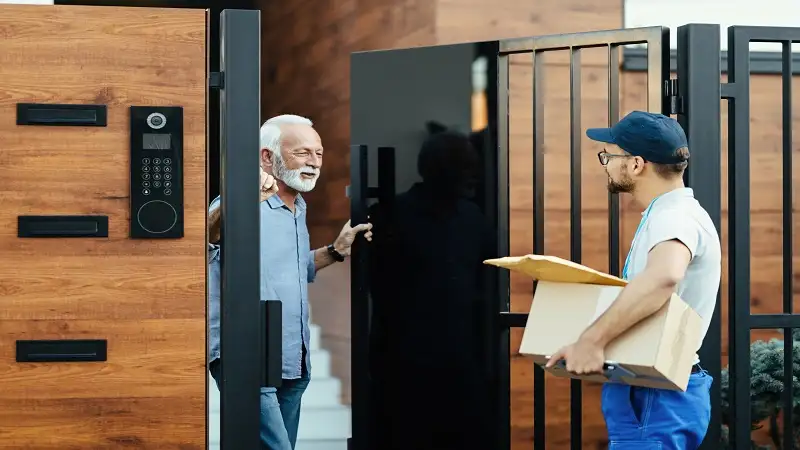A garage door is more than just an entry point to your home—it’s an essential feature that protects your property, enhances curb appeal, and ensures convenient access every day. However, like any mechanical system, it requires regular maintenance to stay in top shape. If you’re a homeowner in Houston, understanding how often to schedule garage door service can save you from costly repairs and unexpected breakdowns. This comprehensive guide explains expert recommendations, local considerations, and practical tips to help you maintain your garage door year-round.
1. Why Regular Garage Door Service Matters
Your garage door operates multiple times a day, with heavy panels, tracks, springs, and electronic components working together. Over time, these parts experience wear and tear, which can lead to malfunctions if neglected.
- Safety First: A well-maintained door minimizes risks such as falling doors or snapped cables.
- Cost Savings: Preventive service is cheaper than emergency repairs or full replacements.
- Longevity: Routine care extends the life of the entire system, from the opener to the springs.
- Smooth Operation: Proper lubrication and alignment ensure quiet, efficient performance.
By investing in regular tune-ups, you protect both your household’s safety and your budget.
2. Expert-Recommended Service Frequency
Industry experts generally recommend servicing your garage door at least once a year. This annual tune-up typically includes inspection, lubrication, balance checks, and minor adjustments. However, several factors may influence this schedule:
- High Usage: If your garage door is your primary entry point, consider servicing it every six months.
- Older Systems: Doors over 10 years old may need more frequent inspections.
- Heavy-Duty Doors: Oversized or custom doors with complex mechanisms may require additional attention.
In short, once-a-year maintenance is a baseline. Adjust according to your household’s usage and the door’s age.
3. Houston’s Climate and Its Impact
Houston’s humid subtropical climate plays a significant role in garage door maintenance needs. With scorching summers, heavy rains, and occasional cold snaps, local conditions can accelerate wear.
- Humidity and Rust: Moist air encourages rust on springs, tracks, and hardware.
- Temperature Fluctuations: Extreme heat can affect metal expansion, impacting door alignment.
- Storms and Hurricanes: Strong winds may stress tracks and hinges.
Because of these local factors, many Houston technicians recommend a biannual service schedule—once before the intense summer heat and again before the cooler, wetter winter months.
4. Signs Your Garage Door Needs Immediate Attention
While scheduled tune-ups are crucial, be alert for warning signs that call for immediate professional inspection:
- Unusual Noises: Grinding, squeaking, or banging sounds suggest misalignment or worn parts.
- Slow Movement: If your door hesitates or moves sluggishly, springs or rollers may be wearing out.
- Door Off-Track: Visible misalignment can pose safety risks.
- Sagging or Imbalance: A door that doesn’t stay in place when partially open may have tension issues.
Don’t wait for a scheduled service if you notice these red flags—address them promptly to avoid bigger repairs.
5. Key Components to Include in a Tune-Up
A thorough garage door service involves a detailed inspection and maintenance of several critical components:
- Springs and Cables: Check for wear and proper tension to prevent sudden failure.
- Rollers and Tracks: Clean, lubricate, and align to reduce friction and noise.
- Door Balance: Ensure the door stays level to avoid strain on the opener.
- Opener System: Test safety sensors, remote controls, and backup batteries.
- Weather Seals: Replace worn seals to improve energy efficiency and keep out pests.
Understanding what a technician checks helps you evaluate the quality of the service you receive.
6. DIY Maintenance Tips Between Professional Visits
While professional servicing is essential, you can perform simple maintenance tasks to keep your garage door functioning smoothly between tune-ups:
- Visual Inspection: Monthly checks for frayed cables or loose hardware.
- Lubrication: Apply a silicone-based lubricant to rollers, hinges, and springs every few months.
- Balance Test: Disconnect the opener and lift the door halfway—it should stay in place if balanced.
- Sensor Cleaning: Wipe the photo-eye sensors to prevent false reversals.
These DIY steps enhance safety and performance without replacing professional care.
7. Choosing the Right Houston Garage Door Service
Selecting a reliable local service provider ensures that your garage door receives expert care:
- Certification and Experience: Look for technicians with industry certifications and strong local reputations.
- 24/7 Availability: Houston’s unpredictable weather means you may need emergency service.
- Transparent Pricing: Request upfront estimates and avoid hidden fees.
- Customer Reviews: Check online feedback for consistent quality and responsiveness.
Building a relationship with a trusted professional makes scheduling regular maintenance easier and more effective.
8. Cost Considerations for Routine Service
The price of a standard garage door tune-up in Houston typically ranges from $75 to $150, depending on the door type and any additional repairs. While this may seem like an extra expense, consider the potential costs of neglect:
- Spring Replacement: $150–$300
- Opener Repair or Replacement: $100–$500
- Full Door Replacement: $800–$2,500 or more
Routine service is a smart investment that prevents unexpected financial burdens.
9. Seasonal Maintenance Checklist for Houston Homeowners
To simplify your garage door care, use this seasonal checklist tailored for Houston’s climate:
- Spring: Inspect weather seals and lubricate moving parts.
- Summer: Check for warping or expansion due to high heat.
- Fall: Test the balance and replace worn rollers.
- Winter: Clean and adjust sensors to avoid malfunctions in damp conditions.
Following this schedule ensures your garage door remains reliable throughout the year.
10. Final Thoughts: Your Ideal Service Timeline
For most Houston homeowners, annual professional servicing plus seasonal DIY checks strikes the right balance. However, if your garage door is older, heavily used, or exposed to severe weather, aim for a biannual tune-up. Prioritizing regular maintenance ensures:
-
A longer-lasting door and opener.
-
Lower repair costs over time.
-
A safer home for you and your family.
By understanding local conditions and staying proactive, you’ll keep your garage door in optimal condition for years to come.
